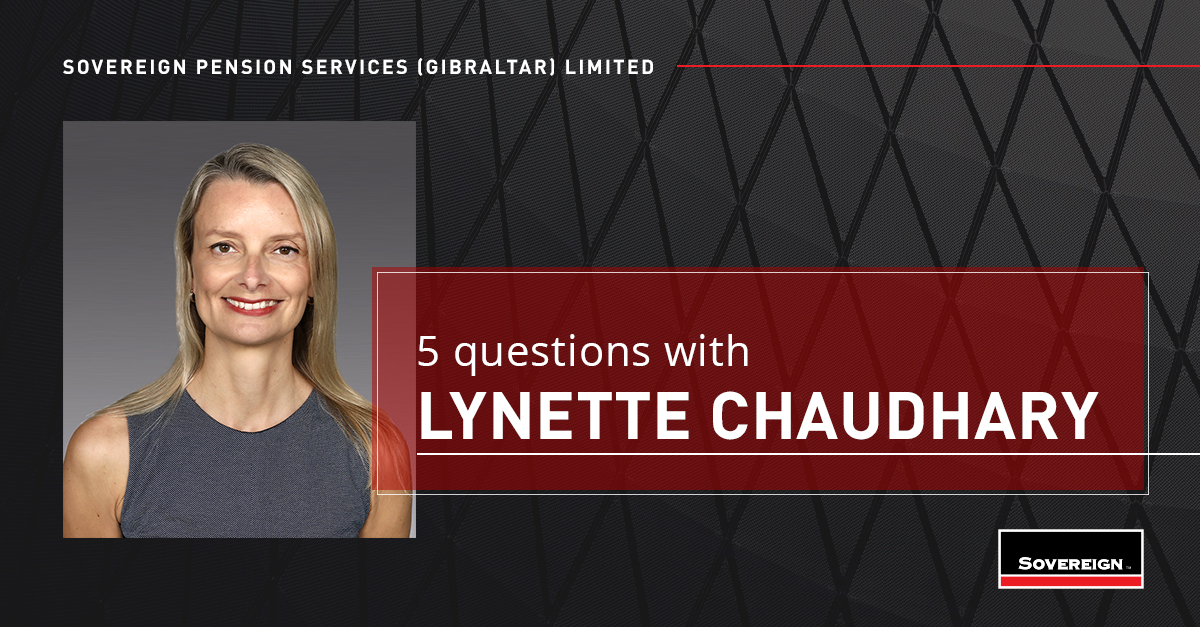
Lynette is Director of Sovereign Tax Services (‘STS’), the Gibraltar-based tax advisory and tax compliance firm. STS provides tax support to individuals, companies, pension schemes and trusts. It specialises in Gibraltar taxation and UK taxation for non-UK residents. Given its expertise and experience, STS can dual-handle Gibraltar and UK tax to provide joined-up tax solutions.
- What’s the role of a tax adviser?
Tax advisers undertake an important role in the administration of the tax system. They offer professional advice to help clients understand the relevant tax considerations and enable them to make informed decisions, whilst also ensuring they file any necessary compliance and pay the correct amount of tax at the right time. They ease the tax burden on clients, leaving them with peace of mind that their tax affairs are in order and freeing up their time to focus on their priorities. - Why work in tax?
Tax affects everyone. For me, I love: the variety of working with different clients (no one day is the same); the cross-border element – understanding how different countries tax rules interact, the domestic and international regimes; constant learning (the tax laws are always changing!); problem solving – applying often complex tax law to address practical problems to work out solutions, and ultimately helping individuals, families and businesses be aware of, and understand their tax position, their options and plan to achieve their goals. - What changes are you seeing in the tax world?
Having worked in expatriate and private client tax for over 20 years (previously in the UK at Arthur Andersen and KPMG, before relocating to Gibraltar in 2005),I’ve seen many changes!In the last few years there’s been a significant sea change in how non-UK residents are taxed in respect of any UK property they own. For example, before April 2015, it was possible for Gibraltar residents to make a gain on the disposal of UK property without any UK tax payable on the gain, this is no longer the case (and there’s a 60-day UK filing deadline for such disposals). Any non-UK residents owning UK property should review their UK tax position. As a registered UK tax agent, we’ve been informed that a HMRC ‘nudge’ letter campaign is imminent, targeting non-resident corporate landlords, concerning ATED, rental income and non-resident CGT between 2015 and 2019.Having always worked with expatriates I’m well versed with all mobility tax issues, but in the post Covid world, we’re seeing increased mobility, remote/hybrid working expectations and arrangements, and this is challenging the current rules. Corporates and employees need to address the tax position for such arrangements, they need to consider strategies to focus on the key areas of tax risk and implement policies and processes.With increased mobility we’re assisting more clients with tax residency advice. In this area, most notably, the first UK tax case has recently been published regarding the UK’s Statutory Residence Test (‘SRT’). The SRT has been in place since 2013. This case found in favour of the taxpayer, saving over £3m in UK tax. Under the SRT’s exceptional circumstances exemption the taxpayer could spend more than 45 days in UK and remain non-UK resident.The First Tier Tribunal stated that “Moral obligations and obligations of conscience –including those arising by virtue of a close family relationship – can qualify as exceptional circumstances and those obligations may be strong enough to prevent a taxpayer leaving the UK”. An interesting read and development.
The digitalisation of tax systems is providing significant challenges, but ultimately with the aim of making tax administration more effective, more efficient and easier for taxpayers.
- What common misconceptions do you encounter?
“I’m not resident in that country, I have no tax obligations there” – not correct if you own assets in that country or derive income from that country.“I can spend up to 182 days a year in any country and not be treated as a resident there” – not correct, specific tax advice should be sought in that country.“I can undertake a significant portion of my work in another country without creating any tax liabilities there” – not correct, often working in a country creates a tax liability in that country, specific tax advice should be sought.“I haven’t filed a tax return as a resident and therefore I’m not tax resident” – not correct, whether you’re resident in a country depends on that country’s tax residency rules, not whether you’ve filed a tax return.“UK Inheritance Tax (‘IHT’) is only a tax on death, not during lifetime” – not correct, it can be chargeable during lifetime, on certain transfers e.g. a transfer into trust, even if the person effecting the transfer is non-UK resident.
“Withholding taxes only apply to residents of that country” – not correct, withholding taxes can be required on payments to non-residents of that country, although it’s possible for Double Taxation Agreements to override this requirement or reduce the level of withholding required.
- What’s the best way to seek advice?
Plan ahead. Advice taken in good time can save considerable cost and anxiety in the long term.Contact a suitable adviser in your country of residency and if applicable in the country where the relevant asset is located / income is derived.HMRC are currently looking at improving the regulatory framework surrounding tax advisers, one idea being considered is a public register of tax advisers. The Chartered Institute of Taxation (the UK’s leading body for taxation professionals) provides an online directory to help locate UK Chartered Tax Advisers. This can be accessed here…ATT/CIOT Portal – Find A Member (tax.org.uk) – there are not many of us in Gibraltar!There are also online tax networks/platforms connecting taxpayers and advisers, for example Tax Natives.
